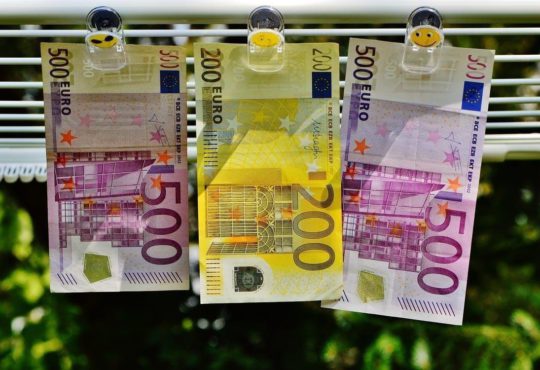A report by the General Inspector of Financial Information ("GIIF") was published in late Q1/early Q2 2020.GIIF") of the implementation of the Law of March 1, 2018 on the prevention of money laundering and financing of terrorism in 2019.
The document does not contain much information in terms of the factoring industry. In this regard, somewhat more interesting was the 2018 report in which the GIIF referred to the results of a CSO survey of the activities of 50 factoring companies (of which 22% were banks, engaged in factoring as a secondary activity). Of the aforementioned non-bank factoring companies, nearly 59% belonged to factoring groups (of which 2 companies were parent companies, and 2 others were parent and subsidiary companies at the same time).
This year's report on strictly factoring only addresses the issues of being subject to the law and the number of entities in terms of PKD.
Other issues worth mentioning:
- The first year of the law. The 2019 reporting year was the first full year of the new Law of March 1, 2018 on the prevention of money laundering and financing of terrorism.
- National Risk Assessment. In July 2019. The GIIF - in cooperation with the Financial Security Committee, cooperating entities and mandatory institutions - developed and published the first national risk assessment of money laundering and terrorist financing. Annex No. 2 to the national risk assessment provides a description of possible money laundering risk scenarios, and Annex No. 3 provides a description of potential terrorist financing risk scenarios using products and services available on and off the financial market. The document is important in the context of the obligation of obligated institutions to prepare and update the own risk assessments.
- Increase in the number of notifications. Compared to 2018, the number of analytical cases conducted at the GIIF increased by 16%. The number of notices of suspicion of money laundering crime increased by 74%, and the total amount of assets suspected of this crime amounted to about PLN 11.3 billion.
- Increase in the number of blocked accounts. There was also a more than twofold increase in the number of bank accounts blocked by the GIIF (302 blocks in 2018 versus 640 blocks in 2019). An analogous situation occurred in the case of financial transaction suspensions (respectively, an increase from 15 to 37). The blocked accounts accumulated funds with a total value of about PLN 208 million and withheld transactions amounting to PLN 31 million.
- CRBR. In October 2019, under the provisions of the AML Law, the following were established. Central Register of Actual Beneficiaries.
- AML Amendments. The AML Law was amended in 2019 (amendment: the Law of October 16, 2019 amending the Law on Anti-Money Laundering and Financing of Terrorism - Journal of Laws item 2088), the provisions of which came into force on November 30, 2019.
- Reporting of suprathreshold transactions. Currently, all data is transmitted electronically, including within the GIIF ICT system that allows automation of the process on the part of the obliged institution. In mid-July 2019, the channel for transferring files via email was closed.
- ML crime patterns. The report describes new lines of analysis and patterns of criminal activity that can also affect factoring. A Polish limited liability company with a minimum share capital of PLN 5,000, headquartered in a virtual office and managed by foreigners (mainly citizens of Eastern European countries) on transactions with foreign entities, was identified as a particularly risky entity (i.e., one that frequently appeared in ML schemes). This type of shell companies had no assets, no technical conditions, no employees - they mediated the transfer of funds equivalent to several to even several hundred million zlotys a year. The counterparties were almost exclusively entities from other countries, and the currency of transactions was most often the US dollar and the euro. Some of the companies were not registered for tax purposes at all, or were removed from the VAT register. Some of them, however, submitted tax declarations and JPK files, but detailed analysis often showed numerous errors and inaccuracies between the declarations and the actual transfers.
- Checks. It should be remembered that w/ the second half of 2018 being a transitional year (change in AML legal status) the GIIF exceptionally, leniently did not conduct inspections. In 2019, the situation was different and there were already 20 inspections and will ultimately be more and more. In addition, in 2019. The GIIF conducted remote inspection activities, so-called "off-site inspections," including at banks and payment institutions. Inspections were also conducted by supervisory institutions (including the NBP and the FSC).
- Whistleblowing. In 2019, the GIIF (via email and traditional mail) received 17 reports of actual or potential AML violations from so-called whistleblowers.







